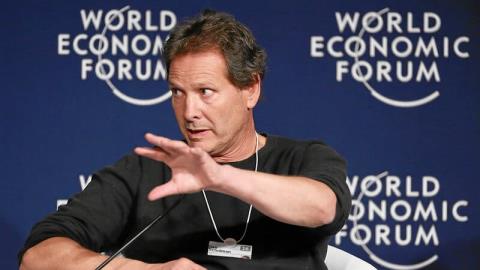PayPal CEO Advocates for a Responsible Economic Reset
In a recent discussion, Dan Schulman, CEO of PayPal, emphasized the critical role of business leaders in supporting a global economic reset in the aftermath of the Covid-19 pandemic. He argues that pursuing profit and purpose is not only compatible but essential for sustainable success. “The notion that these two objectives conflict is entirely misguided; in reality, they complement each other,” he stated.
Schulman highlighted a pressing responsibility for corporate executives to engage with their communities, noting that the pandemic has magnified longstanding societal issues, particularly those affecting financial accessibility. “Globally, billions of individuals remain outside the financial system. In the U.S., approximately two-thirds of adults struggle to make ends meet each month,” he pointed out.
Addressing the recent waves of political and social unrest, Schulman questioned how individuals can embrace democratic ideals when they feel disenfranchised. “Employees increasingly seek opportunities with organizations that drive positive change,” he remarked.
During a session alongside prominent figures such as Klaus Schwab from the World Economic Forum and UNICEF Ambassador Angelique Kidjo, Schulman explored the concept of stakeholder capitalism. This approach prioritizes the needs of all stakeholders—employees, communities, and shareholders—over mere profit maximization, especially in light of technological advancements and global trade dynamics.
Klaus Schwab opened the dialogue by sharing insights on the evolving expectations of corporate responsibility. He noted, “We are transitioning from a focus on short-term shareholder gains towards a more stakeholder-oriented model.” He further stressed the importance of long-term planning, suggesting that companies which fail to adapt may struggle to survive in the current economic climate.
Mazzucato echoed these sentiments, emphasizing the need to institutionalize changes that emerged during the pandemic. “We must normalize new practices rather than relegating them to crisis responses,” she urged. Conditional measures placed on business bailouts, such as mandating reductions in carbon emissions instead of share buybacks, could offer sustainable benefits.
Kidjo pointed out that stakeholder capitalism faces unique challenges in regions like Africa, where corporate leadership often does not prioritize community well-being. Education emerges as a crucial factor in empowering individuals to secure jobs and actively participate in the economy, a goal aligned with the United Nations’ Sustainable Development Goals.
Prime Minister Alexander De Croo of Belgium concurred with Schulman’s view that profitability is essential, sharing that an internal PayPal study revealed significant financial struggles among employees. To address this, PayPal set a target for entry-level employees’ Net Disposable Income (NDI) to be at least 20%. This initiative led to various measures, including reduced healthcare costs, stock options for all employees, and increased wages when feasible. Currently, the average NDI stands at 16%.
Furthermore, PayPal recently committed $530 million to support BIPOC businesses across the U.S., underscoring its commitment to fostering diversity and inclusion in the marketplace.
